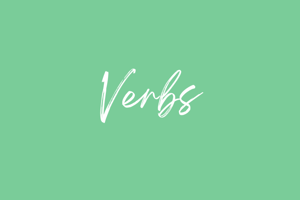Podcast
Questions and Answers
Какая форма глагола используется для выражения будущего времени?
Какая форма глагола используется для выражения будущего времени?
- Настоящее время
- Повелительное наклонение
- Будущее время (correct)
- Прошедшее время
Как называется глагол, выражающий будущее время в русском языке?
Как называется глагол, выражающий будущее время в русском языке?
- Прошедший глагол
- Повелительный глагол
- Настоящий глагол
- Будущий глагол (correct)
Какая форма глагола используется для выражения прошедшего времени?
Какая форма глагола используется для выражения прошедшего времени?
- Я читал (correct)
- Я читаю
- Я должен почитать
- Я буду читать
Какая форма глагола используется для выражения настоящего времени?
Какая форма глагола используется для выражения настоящего времени?
Какие конструкции с глаголами используются для выражения будущего времени?
Какие конструкции с глаголами используются для выражения будущего времени?
Как образуется прошедшее время в русском языке?
Как образуется прошедшее время в русском языке?
Какой суффикс используется для образования настоящего времени в русском языке?
Какой суффикс используется для образования настоящего времени в русском языке?
Какое слово используется для обозначения будущего времени в русском языке?
Какое слово используется для обозначения будущего времени в русском языке?
Какие формы принимает глагол в прошедшем времени для разных родов в русском языке?
Какие формы принимает глагол в прошедшем времени для разных родов в русском языке?
Study Notes
📚 Article on "глагол" focusing on time
===========================================
"глагол" is an essential part of any language, expressing actions, states, and events. In Russian, glagoly can change their forms depending on whether the action occurred in the past, present, or will occur in the future. These changes allow us to communicate when things happened or will happen in relation to the moment we are speaking. Let's dive into these changes!
Time changes in "глагол"
--------------------------
### Past tense
In Russian, the past tense is formed by adding the suffix -ла(-о)-ли-л(-а) to the infinitive form of the verb, depending on the ending of the verb itself. For example, the imperative verb "читать" (to read) becomes "читал" in the masculine singular, "читала" in the feminine singular, "читалось" in the neuter singular, "четали" in the plural.
### Present tense
The present tense is formed differently in Russian compared to English. In Russian, the present tense is denoted by the absence of any morphological marker indicating the present tense. This means that all verbs in the present tense look the same regardless of who performs the action. For example, "я читаю" (I read), "ты читаешь" (you read), "он читает" (he reads).
### Future tense
To indicate future tense in Russian, you use the word "будут" ("будем," "берете," etc.) combined with the conditional form of the verb. For instance, "я буду читать" (I will read), "ты будешь читать" (you will read), "он будет читать" (he will read). Additionally, there are separate Russian "будущий глагол" (future verb) constructions such as "начну читать," "закончу читать," "должен(а) почитать".
Conclusion
----------
Understanding how "глагол" changes in Russian based on time allows us to better convey information about the timing of events. By examining each tense individually, we gain insights into the complexity and nuances of Russian grammar. The ability to accurately express the occurrence of an event in the past, present, or future is critical for effective communication and ensures that our message is understood correctly. So keep practicing those verb conjugations, and happy reading!
Studying That Suits You
Use AI to generate personalized quizzes and flashcards to suit your learning preferences.
Description
Explore how verbs in Russian ('глагол') change based on time, covering past, present, and future tenses. Learn about the suffixes and word constructions used to indicate different time frames, and how these variations impact communication and convey timing nuances in the language.




